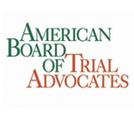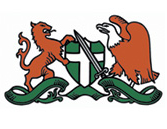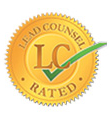A common carrier is a private or public entity that provides transport services for people and goods from one place to another at a fee. Many people rely on public transport because it is a cheaper means of transport than a private vehicle. The common carriers include buses, among others. There are set standards that the common carriers have to uphold as they do their transportation business. The set standards include the regulations that govern passengers' acceptance, liability if an accident happens, and their duty as common carriers. Most common carriers are held to a certain standard compared to other vehicles. It is, therefore, easy to prove negligence if they cause an accident.
Buses are a common method used for travel by many commuters in Los Angeles. The possibility of sustaining long-lasting and severe injuries is high if you are involved in a bus accident. Therefore, you can end up with high medical bills, disabilities, and other expenses that will require compensation. To compensate for your damages, you need to prove negligence by the party at fault. Therefore, you need to hire a qualified attorney to examine all the aspects and gather the necessary information to get fair compensation. At Los Angeles Car Accident Attorney, we have attorneys committed to serving you in your claim for the damages and the losses incurred. The attorney will help you build a strong case for you to get your claim settlement.
Common Carrier Laws in California
Duty of care is a law that concerns many common carriers. The law requires that common carriers should ensure the utmost diligence and care for carriage. It means that the common carriers should provide safety for all the passengers and other road users. Failure to comply means that you and other passengers are at risk of getting injured in an accident that may result from negligence. Buses are among the known common carriers, and according to the law, they must:
- Treat you and other passengers well
- Provide safety in its operation
- Give attention to passengers
- Give proper accommodation to your and other passengers. That includes a special place for the elderly and disabled.
- Not drive erratically or make any sudden stop unless it’s an emergency.
- Ensure proper training for the bus employees and
- Protect all the passengers from harm.
It is a requirement that the common carriers terminate the drivers who do not carry out their duties to prevent any case of accident from happening. Common carriers should also maintain equipment and vehicle safety by ensuring that regular repairs and inspections are done. They should ensure that the equipment is of current safety standards. If a common carrier causes an accident due to failure to comply with the rules, they will be held liable for the injuries and damages caused to any party involved. If you, therefore, become a passenger under company control, say a bus, the bus company has a duty of care towards you.
Common Carrier under the California Law
Before your car is considered a common carrier under California's law, some factors are analyzed. They are:
- The intended or the stated purpose of the common carrier is to transport goods or individuals from one place to another
- The common carrier is promoted to being a public entity for transportation purposes
- There is a consideration for the fees you should pay to transport individuals from one place to another.
Some of the common carriers in Los Angeles include Ski lifts, trains, buses, elevators, and taxi cabs.
How to Prove Negligence in a Court of Law
Every road user in California is mandated to a duty of care for the sake of the other person's safety. When it comes to car accidents, a common carrier that can cause accidents are the buses. A bus is a common carrier expected to provide the highest degree of care and safety in short and long distances. Failure to observe the safety rules is considered negligence in California. If you, therefore, sustain injuries as a result of negligence by the bus driver, you can file for compensation and will need the help of an attorney, and you will get fair compensation. Negligence will, therefore, be established when the party at fault fails to observe the duty of care rule. To prove that the bus driver was negligent, you should prove that:
- The bus driver owed you a duty of care.
- The bus driver breached the duty of care rule and therefore caused an accident that led to you sustaining injuries.
- You sustained injuries due to negligence by the bus driver.
Therefore, negligence by a common carrier can be established by proving that there was a law violation and that the bus driver failed to drive reasonably.
Common Carrier and Passenger Relationship
The relationship between you and the common carrier matters when an accident happens, and you need compensation for the injuries sustained, and damages caused. It is therefore essential for the common carrier to ensure they care for you and other passengers because the law defines you as:
- A person intending to become a passenger when you use a common carrier as a method of transport
- A person whose control is under the common carrier
Therefore, the duty of care will begin when you board a common carrier and ends when you alight at your designated stop. Common carriers have some policies that may terminate your relationship with them. Some of the few causes that will make the common carrier terminate your relationship with them are:
- If you fail to follow the rules stated in their ticket
- If you have a medical condition that will prevent you from traveling safely.
- If the common carrier has reached the maximum number of passengers that have boarded and if you intend to transport dangerous goods.
The common carrier will terminate the relationship because such incidence can lead to an accident, yet they will be held liable for the accident. If an accident happens due to negligence, the responsible party must understand the negligent actions that led to the accident and the accident's cause.
Regulations for Common Carriers in California
Different carrier industries are associated with common carriers. The industries are regulated by the California Public Utilities Commission, including the operation and the manufacturing. The regulations are designed to enhance compliance with the law for all the common carriers. The regulations include:
- The common carrier manufacturer must install brakes on every wheel for any vehicle using the California roads.
- The buses must have automatic or manuals braking systems that can be used in adverse conditions like storms and snow.
- In case the buses do not have a manual or automatic braking system, they have to comply with the stopping distance requirements.
- The buses must have a communication mechanism that will enable the driver and other motorists to communicate in case of an emergency. The device used for communication should be in good condition at all times.
Inspection Requirements
According to California law, it is a requirement that every driver inspects their vehicle before and after the trip. The inspection will help in identifying any defect and fix it before starting. Some areas are recommended for checking in any common carrier. They are the vehicle systems roof, the interior, access doors, and any hazardous material.
Vehicle Systems
Inspecting the vehicle system will help you determine if your car is ready to start another trip or not. It will also help you identify any mechanical issue that needs to be fixed and do the necessary repairs. That will also prevent accidents from happening. the vehicle system that requires regular checks are:
- Wipers
- Mirrors
- steering mechanism
- parking and service brakes
- wheel, tires, and rim
- emergency equipment
Access Doors
It would help if you looked at all the panels and access doors before you cause an accident. The panel and access doors include the restrooms, engines, and emergency exits. Suppose you get involved in a common carrier accident due to the other party failing to look at the panels and access doors. In that case, you should have your attorney to help you file for compensation for the injuries and losses incurred.
The Bus Interior
You should inspect your car to determine if there is any problem or damage that needs to be fixed immediately. The damages that are likely to be found in your car are:
- The handhold damages
- The covering of the floor
- Signaling devices
- Emergency buzzers
- The seat-you should ensure that they are firm to the car
- Visible labeling
Roof Hatches
Some of the things you should ensure that are in place are:
- Electric fuses
- Emergency reflectors
- Ventilations
- Fire extinguishers and
- That the emergency hatch should be locked
Loading Requirements
There are requirements for weight restrictions that all common carriers must adhere to. The requirements vary depending on whether the common carrier is for transporting people, goods, or both. The thing you should look into before you load your vehicle are:
- The cargo or the baggage should be firmly secured
- The aisle shouldn’t have any luggage. That will prevent the passenger form tripping
- The bags have to be secured to enable the riders to exit through different exits in an emergency.
- The luggage should be secured in a way that it will not fall off and injure the passengers.
- The arrangement of the luggage should be proper to enable you to move freely.
Hazardous Material in the Buses
California law restricts all the common carriers from carrying dangerous materials. The few hazardous materials that are allowed in the common carriers include:
- The hospital supplies
- An oxygen container that is intended for personal use
- Small arms ammunition
As a driver for the common carrier, you should also ensure that the passengers do not carry any hazardous material in the vehicles like gasoline.
Loading and Unloading
Accidents can result from the loading and unloading of the buses. The bus driver is supposed to ensure that all the passengers are seated before driving off and should start and stop the bus smoothly to prevent accidents that may result in injuries. The bus driver should announce the destination’s location, tell the reason for making the stop, and announce the next departure and the bus number. Before alighting, the bus driver should also remind you and other passengers of your luggage and watch out in case of any hazards.
In the case of a school bus, the drivers should exercise extra care when driving. Some of the safety measures include:
- Slowing down before making a stop
- Stopping at the designated areas
- Ensure that at the time of the stop, there are no students or any other passenger in the way.
- Ensuring that all the students are well seated before starting and
- Ensuring that the students are accounted for before starting.
Passenger Safety
The diver of the common carrier should remind you and the other passengers of some simple rules like using electronic devices, not smoking in the vehicle, being vigilant while using the roads to prevent accidents and other precautions like not putting their heads out of the bus when traveling. Drivers also have some safety precautions to observe to ensure that they do not put you at risk or any other danger. They should not fuel the common carrier while you are on-board unless the situation is unavoidable, and the driver should not have the common carrier towed if it has broken down. If you sustain injuries due to the driver’s negligence, you have a right to get compensation for all the losses and damages.
Regulations While Driving
The common carrier driver should ensure your safety and other passengers' safety to avoid any accident from happening. Some of the rules that govern the drivers are:
- Not to converse too much with the passenger to avoids some distractions
- Being careful to watch hazards and road signals
- Driving using the recommended speed
- Using mirrors to check out for any potential hazards
- Not changing breaks while crossing a railway
- Obeying the traffic rules and
- Slowing down in case other r vehicles are crossing the road.
Common Carrier Federal Regulations
There are safety regulations designed by the federal government to ensure maximum safety for the common carriers. Therefore, it means that if you get injured in an accident as a result of a violation of the federal government rules, you have a civil right to file for compensation from the liable party. The federal regulations are meant to reduce the rate at which accidents happen by ensuring the drivers follow the set regulations. The regulations include:
- A common carries driver must have a valid license
- The common carrier driver should inform his or her employer in case of any convictions
- When applying for the job, the common carrier driver should present a record of previous employment
- The common carrier must be maintained from time to time
- The common carriers, especially the buses, should be inspected to ensure the emergency door and push out windows are working well and
- The common carrier should be well operated.
The federal regulations also govern the manufacturers because the manufacturers are expected to adhere to performance requirements to avoid faulty parts that may lead to an accident.
Investigation for a Common Carrier Accident
Since most common carrier accidents lead to severe damages and injuries, a comprehensive investigation should be done. By hiring our attorney from Los Angeles Car Accident Attorney, you will have your case well analyzed, and essential information gathered to win. Other help that you will receive from our attorney is:
- The attorney will help fasten the investigation process to ensure the evidence does not fade away.
- The attorney will assist in creating an accurate report about the common carrier accident with law enforcement officers' help.
- The attorney will also help you hire other parties that will help build a strong case. Some parties who will help build a strong case include the mechanical engineers and biomedical engineers.
These parties will also help gather the evidence that will be represented before the judge, including the medical report that will prove the severity of the injuries that you sustained.
Investigating to get proof that the other party's at fault, the attorney will also investigate and keep a record of:
- The eyewitnesses. The eyewitnesses include the people who were around before and after the accident happened.
- The testimony from the expert witness. The expert will explain the negligent actions that led to the accident and resulted in your injuries.
- The images. The photographs that were taken at the accident scene help prove the negligence of the common carrier driver.
- The inspection records. The record will show if there was a part of the vehicle that needed a particular service. If so, the liability goes to the party responsible for having the common carrier maintained.
- There are times that the common carrier driver will overlook other motorists and fail to do as expected. If the negligence leads to an accident and you sustain injuries, you must file for a compensation claim.
Damages Caused in Common Carrier Accidents
As a victim of the common carrier accident, you may sustain short term and long term injuries that may dramatically change your life. With that, you require compensation from the liable party. California law allows you to file for compensation for the injuries and damages. You, therefore, need an attorney to get the best outcome for your compensation claim. Depending on how severe the injuries and damages are, you should get compensation for:
- Pain and suffering
- Disability costs
- Rehabilitation expenses
- Medical expenses
- Therapy costs
- Punitive damages
- Consortium loss
- Emotional distress and
- Loss of earning capacity
Liability in a Common Carrier Accident
It can be very complex to determine liability in a common carrier accident, especially for buses, because the parties involved are numerous. Some of the causes that lead to common carrier accidents in Los Angeles are:
- Fatigue or the bus driver sleeping
- Distracted driving
- Negligence by the bus driver
- Substance and alcohol abuse
- Poor driving skills
- Poor servicing and maintenance
- Defective equipment
- Bad weather and
- Poor roads
Therefore, it means that the bus driver can be held liable for the accident, but there are other parties involved. Some of the parties that may be held responsible if you get injured in a bus accident are:
- The bus company
- Maintenance company
- The bus manufacturer
- The local government
- The bus owner
- The school board in case it is a school bus and
- The state government
A common carrier will be liable for injuries if:
- It doesn't maintain the safety
- It closes the door before you board
- It loads passengers in a place that is unsafe and
- It starts before the passengers are well seated.
Duty of care will only end after you and other passengers alight safely and are therefore not exposed to the risks of any bus operations. There are some instances where you can sustain injuries as a result of natural causes of the accident. For example, an accident may occur as a result of bad weather. Natural causes may exempt you from claiming compensation because the bus driver did not intend to cause the accident and was not negligent.
Find a Los Angeles Car Accident Attorney Near Me
Common carrier accidents will happen if the duty of care rule is not adhered to by the driver. If it causes an accident, you may end up sustaining injuries that will make you dependent on others for the rest of your life. This is the reason why you should seek compensation from the liable party. If you or your loved one gets injured in an accident involving a common carrier, you should file a claim to get fair compensation for damages caused and injuries sustained. At Los Angeles Car Accident Attorney, we believe that you have a right to reasonable compensation if you get injured in a common carrier accident because drivers owe you a duty of care. Call us at 424-237-3600 today.






